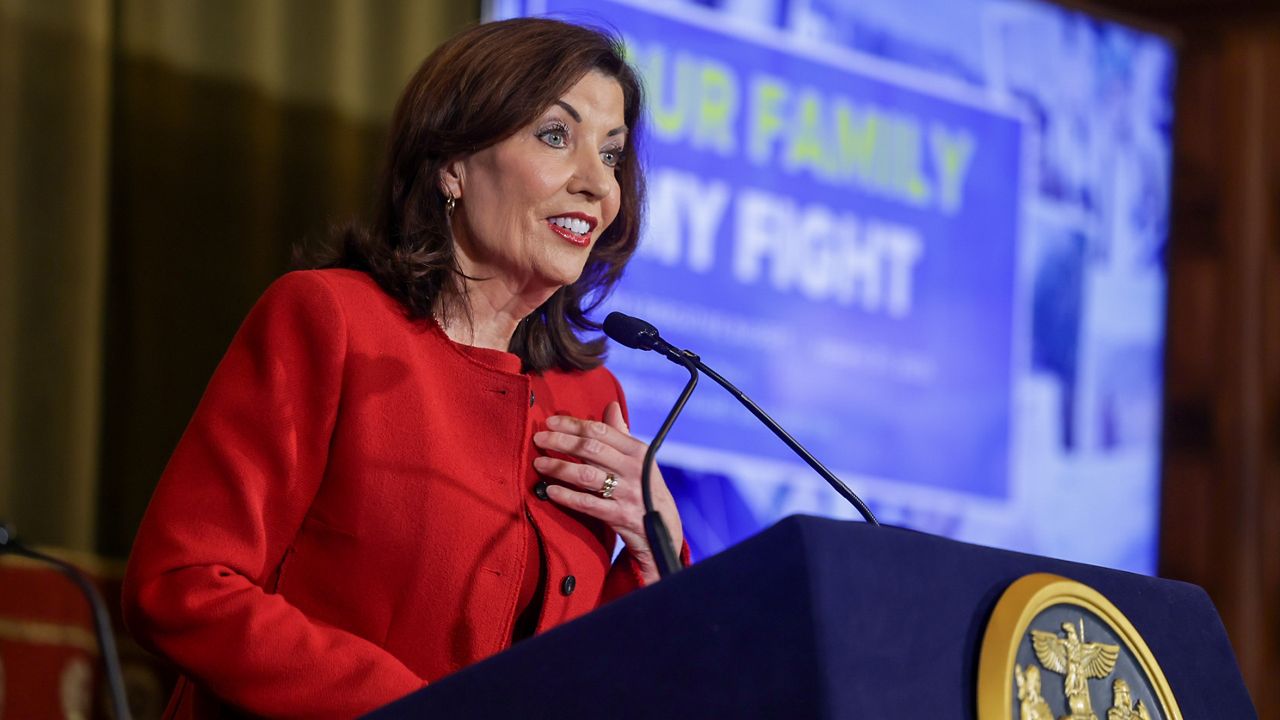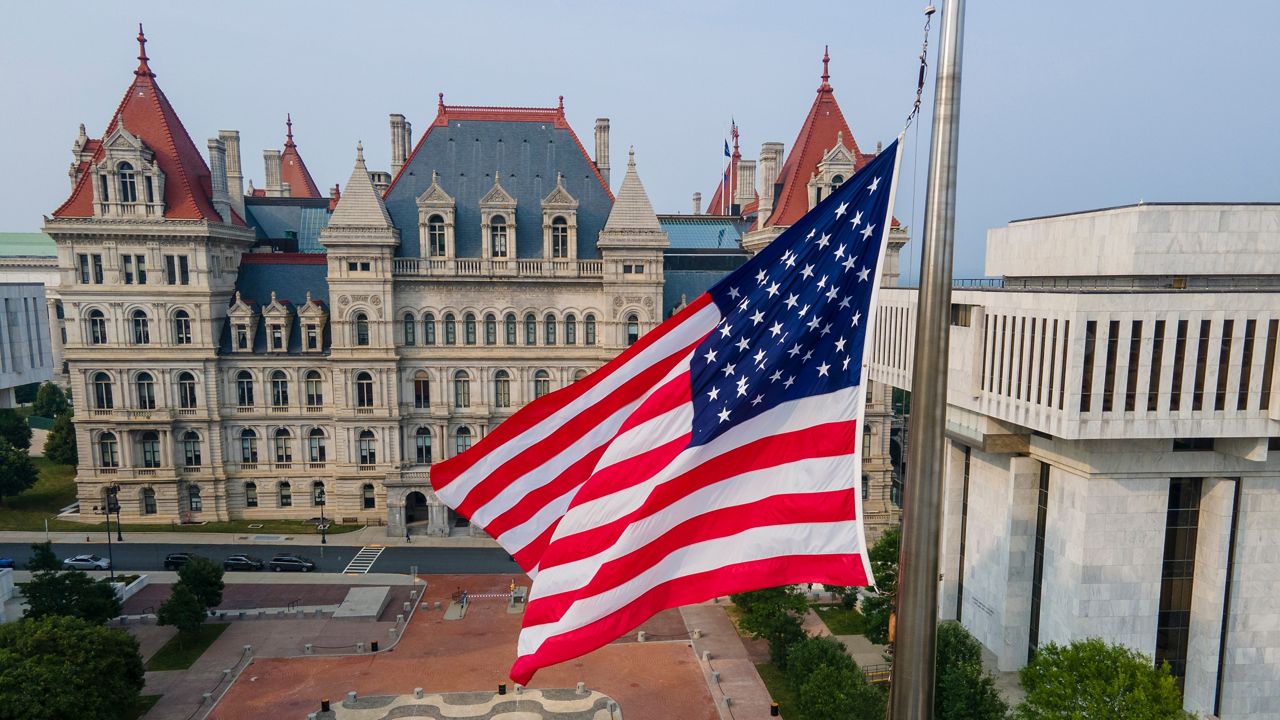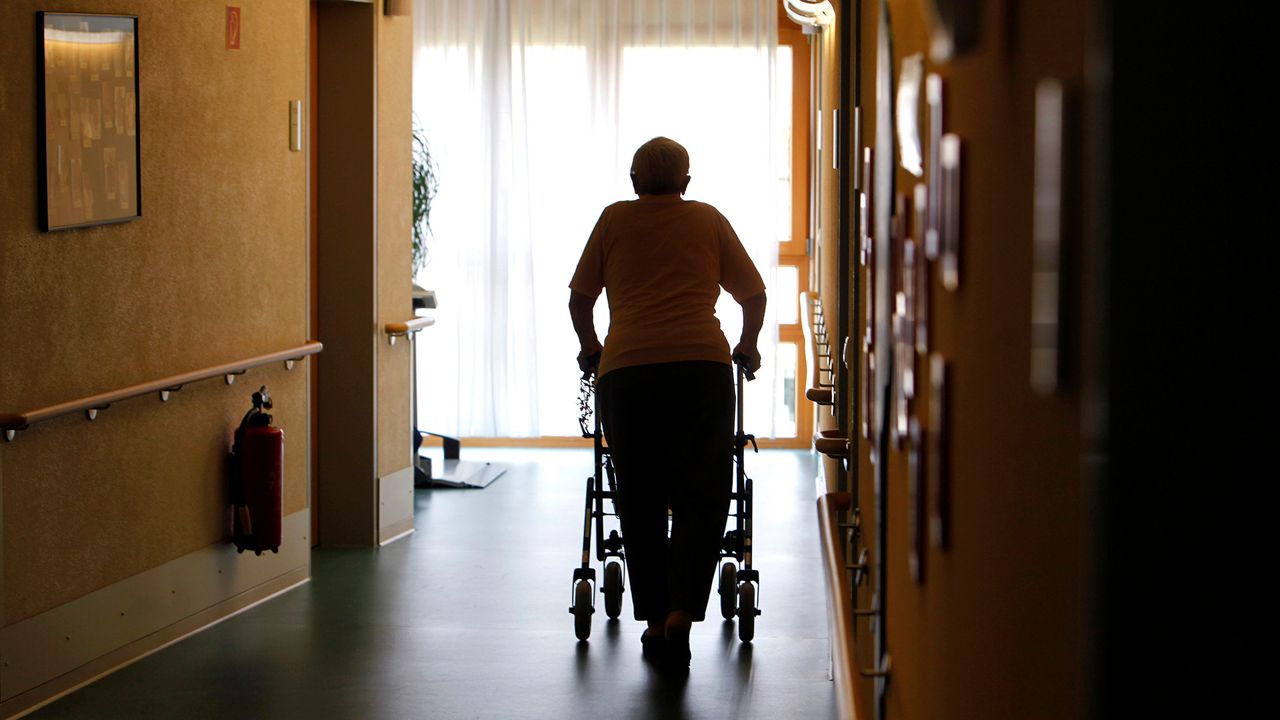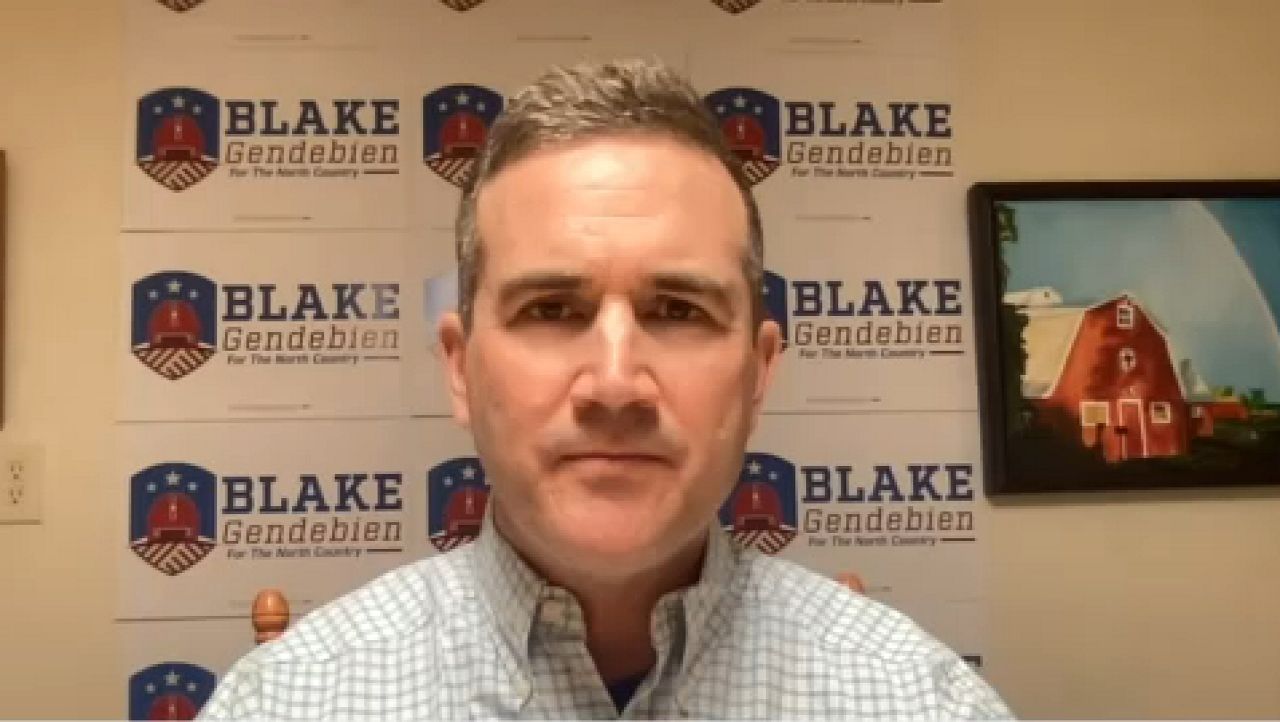Local officials across New York state want legislative leaders to have a change of heart as the Senate and Assembly hold the line against Gov. Kathy Hochul’s budget priority to expand forced treatment for people suffering from mental health issues who pose a danger to themselves or others.
Several Democratic lawmakers are against the proposal, which they argue would criminalize homelessness or be difficult to implement. But mayors and county executives say state lawmakers fighting Hochul's plan don’t know what local governments have been dealing with.
"We see individuals who go into Albany Medical Center because it's the trauma center for an entire region and they are determined not to be a danger to themselves or others," Albany Mayor Kathy Sheehan told Spectrum News 1. "And they are put right out onto our sidewalks and our streets, and these are individuals who clearly need help."
Dozens of mayors and county executives signed a letter Friday urging legislative leaders to lower the standard to force a person with a mental health issue to be hospitalized for treatment after both houses rejected Hochul's change to the mental health law.
Syracuse Mayor Ben Walsh, who also signed the letter, said the governor's plan would give local governments additional tools to help people struggling with mental health disorders.
"The reality is, there are some individuals that have proven to be extremely difficult to engage, to get connected to services," said Walsh, an independent.
"...We're not just providing those services for city residents, we're providing them for individuals throughout the region."
Both mayors shared several stories about people who came to their area to get treatment for mental health or addiction, then were released on the street before they were ready.
Sheehan recounted several examples where the expanded criteria could have prevented harm to residents and local businesses, including how a man on county probation with mental health issues shot a police officer and later died by suicide.
And recently, a woman from Hudson who was released from treatment too soon destroyed several Central Avenue business with a hammer in an early-morning attack.
"This has got to stop," Sheehan said. "There has to be something we can do to ensure the individuals who need help get that help so people in our community feel safe."
The top Albany Democrat said the current involuntary commitment statute is interpreted too narrowly.
Hochul's proposal would clarify what information clinicians should consider, including a person's inability to provide their essential needs such as food, clothing, medical care, safety or shelter when deciding the likelihood the person's condition would "result in serious harm." It would also make it easier to recommit a patient whose initial court order for treatment has expired.
The Business Council of New York State has not taken a position on the proposal.
Leaders with the New York Association of Counties and the New York Conference of Mayors said Friday that both groups are in favor of Hochul's push to keep severely ill mental health patients in hospital care.
The mental health law debate is one of several issues expected to make the budget late.
Assembly Speaker Carl Heastie said Hochul needs to draft definitive budget language on top policy issues for negotiations to proceed, and they're still in the early stages of debating the mental health proposal.
"We haven't had a super in-depth discussion," the speaker told reporters in Albany on Thursday. "I feel like the majority of the conversations were more about discovery and cell phones but I'm sure the conversations around the mental health stuff will start to pick up."
Both lawmakers who chair the Senate and Assembly mental health committees stand firmly against the proposal — arguing more money for voluntary programs and to implement Daniel's Law would better address the mental health crisis.
They've expressed concerns for months that the expansion would criminalize homelessness, disproportionately impact people of color and be difficult to implement.
Advocates continue to meet with lawmakers, urging them to stand their ground, and say localities that want the change don't have the right services.
"Putting more forced treatment on us doesn't matter if the services aren't there and the right services and the staff aren't there," Alliance for Rights and Recovery CEO Harvey Rosenthal said. "So it sounds better than it is."
The Legislature is vying for about $20 million to implement Daniel's law pilot programs statewide to require a crisis team respond to emergency calls involving a mental health issue or substance abuse.
Hochul included $10 million for seven new clubhouses for people with serious mental health issues and $4 million to create a hospital-based "peer bridger" program and expand Intensive and Sustained Engagement, or INSET, teams.
Rosenthal said those services work better than coercive treatment, and need to be better funded on streets across the state.
"Upstate and other communities ought to grab that money and put these services up," he added. "That's what's really going to get it done."
But local officials backing Hochul's plan argue her proposal is the best way to change a broken system because the status quo isn't working.
"We need to help people and we're not doing that right now, and it's not OK with me to know that," Sheehan said. "Instead, what we're saying is because you have the right to self-determination, you have the right to die on our streets. That shouldn't be the solution."







_PKG_cannabis_management_new_leadership_CLEAN)




